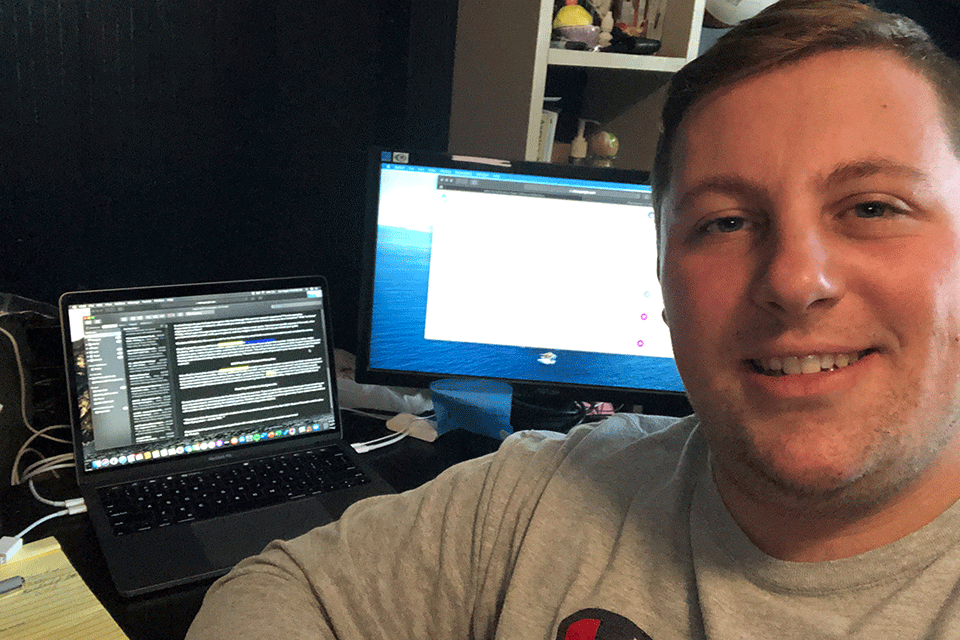Trio Looks into Pandemic Impact on the Undergraduate Research Experience
Honors student Ethan Hutchins and Andrew Clark and Nicholas Nelepovitz spent their summer working together to research how COVID-19 would impact undergraduate research and how to navigate this environment to get the most out of their experience. The group’s goal was to provide students with beneficial information about the research experience, especially with new guidelines and regulations that posed limits to the learning experience for undergraduate research.
“Here at Fisher, we pride ourselves on the research we complete and the educational value associated with this hands-on experience. In order to help students through this new process, our group set out to focus our efforts on key aspects of undergraduate research that we believed would be most significantly impacted by the pandemic and suggest innovative ways to approach these challenges,” shared Clark.
The group hopes that their research will give new researchers the opportunity to understand and value the importance of engaging in these rich experiences. The team saw several aspects of research as a fundamental part of the learning experience in an attempt to help students better their experience during the time of COVID-19 and future instances like this. One of the aspects they saw to be vital is communication. There had been a change in response time to questions from quick and immediate response when face to face with their mentor, to using a system of video chats, group chats, and phone calls to aid transparency. Another aspect they highlighted was the importance of understanding the new barriers that surround learning hands-on techniques. Before the pandemic, mentors were able to help students facilitate essential tasks, but now students have to rely on paper or video based learning platforms. With this change in mind, the team planned to make video recordings of experiences with students highlighting necessary techniques.
When the team set out for their research this summer under the leadership of Dr. Jonelle Mattiacio, their hope was to produce a product that could be published and have a positive impact on undergraduate research at all institutions. This led to one of the major challenges the team faced, finding the most appropriate journal for submission. Currently, they are continuing to work on their manuscript to submit to BIOS, an undergraduate journal of the Beta Beta Beta Biological Honor Society, this fall.
Both Clark and Nelepovitz hope to pursue this research topic in the future. Clark hopes to continue the research and begin to connect with other institutions and labs across the country to help create ideas that will aid in the progression of the undergraduate research learning experience. With interests in becoming a professor, Nelepovitz hopes to continue this research as a professor in the future.
